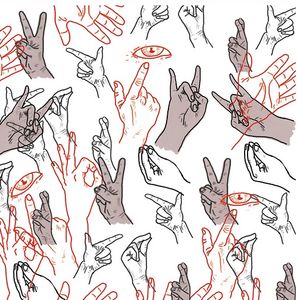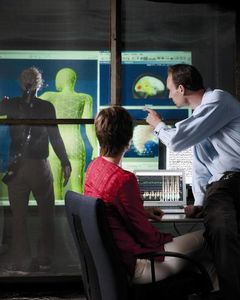By Rachael Murphy
Why Are People Sexist, Racist, and Judgmental? Behind Cognitive Bias and Prejudice
A man or a woman could be of above-average intelligence, well-educated in medicine and psychology, and understand that every statistical measurement of personality and temperament can be distributed across a bell-curve in a large enough population. He or she could comprehend the determining power of genetics, the impact of cultural influence on belief systems, and how neuroplasticity molds our mental processing to respond to environmental stimuli.
A clever, sophisticated professional could understand all of this, yet still believe that somehow, all members of the opposite sex are manipulative and irrational. Not some, all 3.5 billion of them. Why?
Perhaps throughout his or her life, this person has made irrational decisions to socialize with very irrational and emotional people of the opposite sex, and through these experiences has thus formed a gender bias. Research shows we tend to mostly place people into categories of gender, race, and age. This task is so pervasive that scientists have deemed it our “primitive” categorization.
 Once we’ve made up our mind about a group, or even someone in particular (consciously or not), it’s often hard to change our opinion. When beliefs are formed, confirmation biases kick in and begin to look for information that supports our views, and selectively ignore everything which doesn’t. Maybe someone had decided that you were shy and uptight when you first met. You were more reticent than usual because you had only gotten 3 hours of sleep the night before. Now that acquaintance may not notice all the times you’re friendly and outgoing, but instead seems to pounce on all the times you’re a little quiet.
Once we’ve made up our mind about a group, or even someone in particular (consciously or not), it’s often hard to change our opinion. When beliefs are formed, confirmation biases kick in and begin to look for information that supports our views, and selectively ignore everything which doesn’t. Maybe someone had decided that you were shy and uptight when you first met. You were more reticent than usual because you had only gotten 3 hours of sleep the night before. Now that acquaintance may not notice all the times you’re friendly and outgoing, but instead seems to pounce on all the times you’re a little quiet.
Neurobabble

Are there REALLY parts of the brain dedicated to categories of thoughts like some reports say?
The field of neuroscience has undoubtedly expanded over the past two decades, and the explosion of all this cutting-edge discovery has inevitably lead to its proliferation in our culture. However, the spread of interest to the general population has begun to instigate the problematic phenomenon of what some scientists deem “neurobabble”. It refers to the overly simplified and misinterpreted information that many contemporary writers use to appeal to the public. Neurobabble in recent pop-science books and articles often engenders false conclusions and denies proper understanding about how the brain really works. More
Put Your Hands Up for Intelligence
Ever wonder why people still “talk with their hands” when they’re on the telephone? We often use hand gestures while speaking even at times when the listener cannot see them. Gestures are processed in the same areas of the brain as speech (think sign language): the left inferior frontal gyrus (Broca’s) and the posterior middle temporal gyrus (Wenicke’s area). Hand movements help us to communicate more efficiently and emphasize certain points of the message  we are trying to convey to our conversational partners. They’re an indication of our thought process throughout the discussion. Evolutionary insight proposes that the language brain regions, which originally supported the pairing of body language and meaning, have been adapted in humans for spoken language; however, we still don’t know precisely the reason why people gesture, and more interestingly, why some people use gestures more often than others. More
we are trying to convey to our conversational partners. They’re an indication of our thought process throughout the discussion. Evolutionary insight proposes that the language brain regions, which originally supported the pairing of body language and meaning, have been adapted in humans for spoken language; however, we still don’t know precisely the reason why people gesture, and more interestingly, why some people use gestures more often than others. More
Mystical Minds?
Using the human nervous system as a representational medium, are there parts of the universe that are innately unknowable to us- are there realities that we can experience but not objectively measure? Is spirituality real, or a man-made delusion to justify ambiguous emotions and guide behavior? Is consciousness an emergent property or does it extend beyond?
These are timeless ontological questions that have been posed by both philosophers and the common man for centuries. But only recently has the new field of neurotheology, the study of correlations between neural phenomena and subje ctive experiences of spirituality, emerged on the scene to advance our understanding of what the brain undergoes during religious practices. Whereas before we could only rely on logic and speculation in an attempt to tackle some of these controversial issues, today neuroscientists are beginning to uncover substantial information regarding the relationship between brain activity and “the feeling of God”.
ctive experiences of spirituality, emerged on the scene to advance our understanding of what the brain undergoes during religious practices. Whereas before we could only rely on logic and speculation in an attempt to tackle some of these controversial issues, today neuroscientists are beginning to uncover substantial information regarding the relationship between brain activity and “the feeling of God”.
Scientists have long been intrigued by claims of mystical encounters. Though these assertions may seem to be all too uncommon and even downright outlandish in an increasingly “secular” nation, still a survey by the Pew Form on Religion and Public Life demonstrated that nearly half of American adults today have had what they consider a “religious" or "mystical experience” of some kind. In order to investigate the biological basis of these obscure episodes, scientists first explored the effects of psychedelic drugs, which have a long history of traditional use in religion. Since users of psychedelics often report of the drug’s ability to elicit a sense of the spiritual, as well as promote mental healing, researchers sought empirical support for the notion that psychedelic drugs could facilitate "religious experiences". More
“Avatar" Virtual Reality: Scientists Explore Self-Consciousness
![]()
In the 2009 film Avatar, scientists exploring the planet Pandora used alien hybrid bodies called "avatars" that functioned through a mental connection established with their genetically-matched human counterparts.
While this kind of technology seems as science fictionally fantastic as only the movies can portray it, recent work in the neuro-scientific community may lead the world to think otherwise. Neurologist Olaf Blanke, with the Brain Mind Institute at Ecole Polytechnique Fédérale de Lausanne in Switzerland, led a Virtual-Reality (VR) experiment utilizing computerized “virtual humans” to gain a deeper understanding of the neurobiological basis for the knowledge of one’s location in space. Interestingly, his team seems to have discovered that the sensation of possessing a body arises as part of our own conscious experience.
Blanke and his team had volunteers wear VR stereoscopic visors, or view projections on a large screen, while the researchers challenged them about fundamental aspects of self perception. The scientists physically touched the subjects either in sync or out of sync with their digital human “avatars” as they wandered through 3D environments, and even ‘immersed’ them into an avatar of the opposite sex. They also changed the subject’s perspective from the first to the third-person point of view. While such methods may seem a bit odd and even unorthodox, the response of the subjects to such testing was both highly positive and truly fascinating. Indeed, as Blanke commented regarding his own observations: "They start thinking that the avatar is their own body; we created a partial out-of-body experience. We were able to disassociate touch and vision and make people think that their body was two metres in front of them".
Throughout the experiement, subjects were fitted with electrode-containing skullcaps to record the electrical activity produced by their brains. The data collected by the electrodes and brain imaging scans (via fMRI) during the study demonstrated a heightened response in the temporo-parietal and frontal regions of the volunteer's brains, areas classically considered responsible for integrating touch and vision. These findings suggest that the subjects' brains were successfully being tricked as they experienced their own "bodies" in virtual space.
Progression in the knowledge of self-awareness and virtual reality could lead to major advances in the fields of robotics, neuro-rehabilitation and even severe-pain treatment. Imagine being able to temporarily “leave” the body as it heals after a serious injury! Though we may never get to explore Pandora, the implications of such out of body "avatar" experiences could be enormous.
Scientists project humans into avatars - Financial Times
Scientists explore the meaning of self-consciousness - Irish Times
The real avatar - EurekAlert